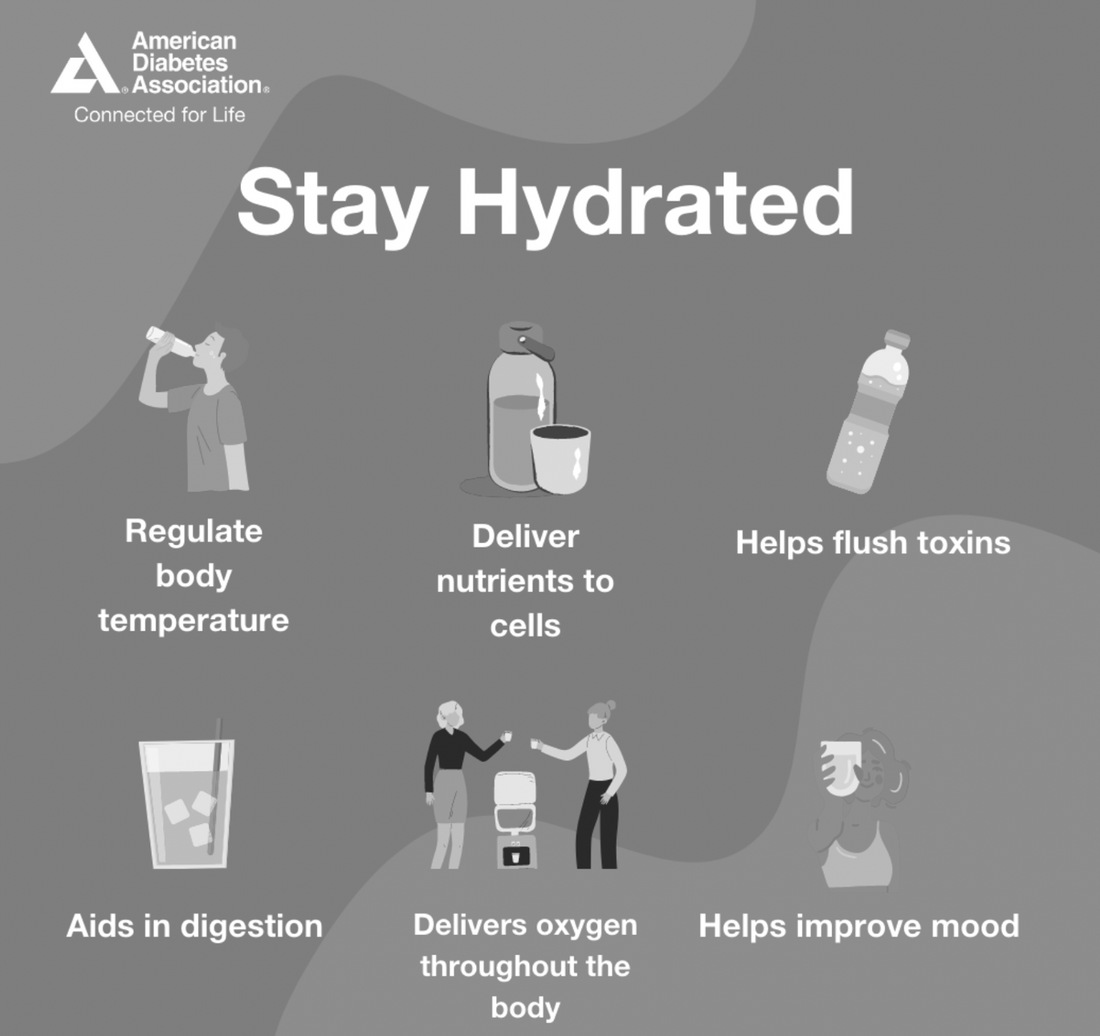Managing diabetes isn’t just about numbers—it’s about feeling good in your body, having energy, and living a life you enjoy. While medications and monitoring are key parts of care, the everyday choices you make can make a huge difference in how you feel.
If you’re living with diabetes (or supporting someone who is), here are some simple, powerful lifestyle habits that can help you feel better—day in and day out.
🥗 1. Fuel Your Body with Balanced Meals
Food is one of the most powerful tools you have. The goal isn’t perfection—it’s balance.
What helps:
- Build your plate with lean proteins, healthy fats, and fiber-rich carbs (like whole grains, legumes, and veggies).
- Watch portion sizes—especially with carbs—and space meals evenly through the day.
- Avoid skipping meals, which can lead to energy crashes or blood sugar spikes later.
Pro tip: Try the “plate method”—half non-starchy veggies, a quarter lean protein, a quarter whole grain or starchy veggie.
🚶♂️ 2. Move Your Body—Even a Little Helps
You don’t need to run marathons to get the benefits. Physical activity helps your body use insulin better and improves mood, energy, and sleep.
What helps:
- Aim for 20–30 minutes of movement most days: walking, dancing, swimming, or even cleaning counts.
- Add short walks after meals—it helps lower blood sugar levels naturally.
- Include some strength training a couple times a week (think bodyweight exercises or resistance bands).
😴 3. Prioritize Sleep Like It’s Medicine
Lack of sleep can mess with blood sugar, increase insulin resistance, and leave you feeling foggy and moody.
What helps:
- Aim for 7–9 hours of quality sleep per night.
- Keep a consistent bedtime and wind down with a relaxing routine (no screens an hour before bed can really help).
- If sleep is a struggle, talk to your doctor—conditions like sleep apnea are common in people with diabetes.
🧘 4. Manage Stress Before It Manages You
Stress hormones like cortisol can cause blood sugar to rise. Learning how to handle stress can have real physical benefits.
What helps:
- Try deep breathing, mindfulness, or meditation (even just 5 minutes can help).
- Talk it out with a friend, therapist, or support group.
- Get outside—nature is a natural stress reliever.
💧 5. Stay Hydrated & Limit Sugary Drinks
Dehydration can lead to higher blood sugar. And sugary drinks? They’re one of the fastest ways to spike blood glucose.
What helps:
- Drink plenty of water throughout the day. FAST:RX wellness drink is a great option as it is flavored and loaded with nutrients to help folks feel better while being zero sugar, zero calories, and zero net carbs.
- Swap soda or juice for sparkling water with lemon or a splash of fruit. Drinks like FAST:RX with fasting electrolytes can also be a great option as it made by real fasting dieters for anyone operating on less calories feel better.
- Be mindful of alcohol—keep it moderate and always with food.
📈 6. Know Your Numbers—But Don’t Let Them Rule You
Keeping tabs on your blood sugar can give you valuable insight. But it’s also okay if things aren’t perfect all the time.
What helps:
- Check your levels consistently, as recommended by your doctor.
- Notice how food, activity, and stress affect your numbers.
- Use the data to guide your choices—not to judge yourself.
❤️ 7. Celebrate Progress, Not Perfection
Living with diabetes is a journey. Some days will feel easier than others, and that’s completely normal.
What helps:
- Set small, achievable goals (like walking for 10 minutes or trying a new veggie).
- Celebrate the wins, however small.
- Remember: progress over perfection, always.
Final Thoughts
You are not your diagnosis. With a few consistent habits, you can feel more energized, in control, and supported in your day-to-day life with diabetes.
If you’re looking for extra support, talk to a certified diabetes educator or registered dietitian—they’re experts in helping you build a routine that works for you.
Because when it comes to diabetes, it’s not just about managing symptoms—it’s about living well.


